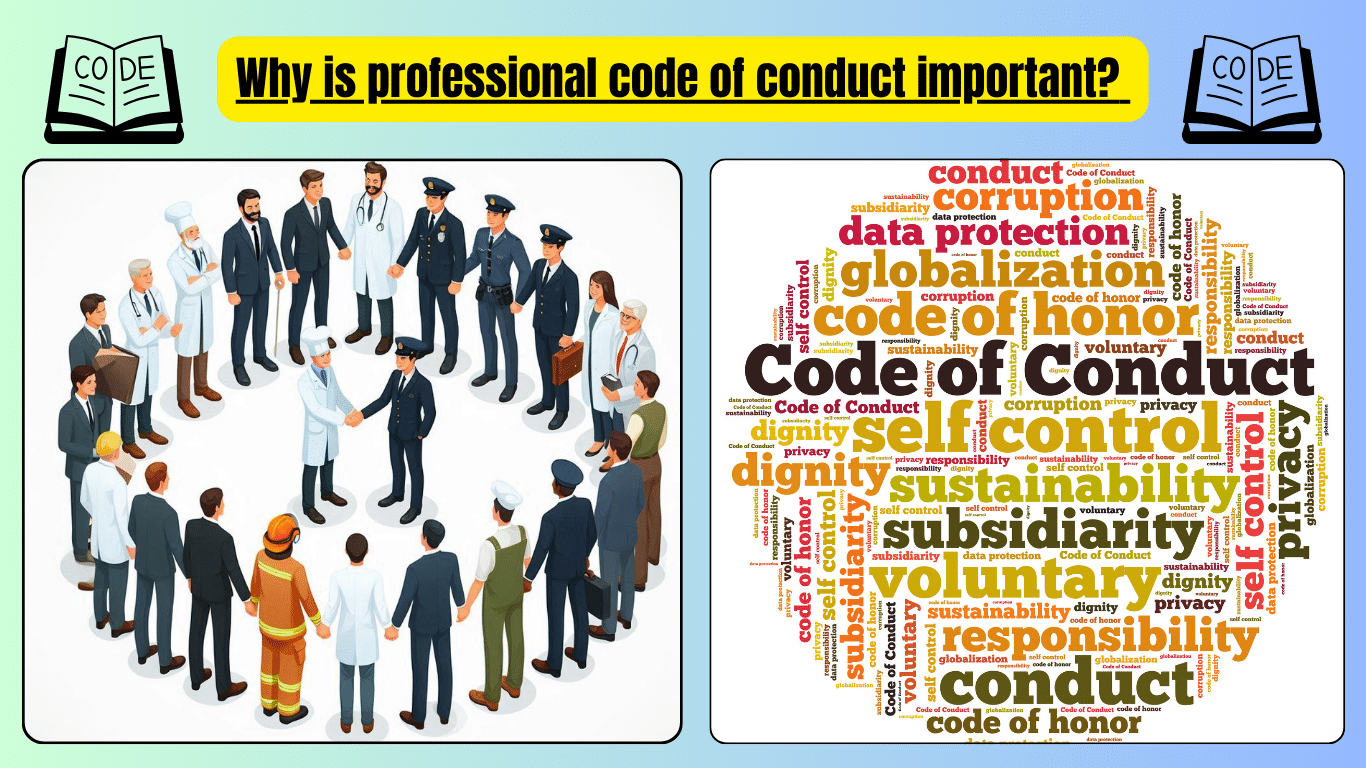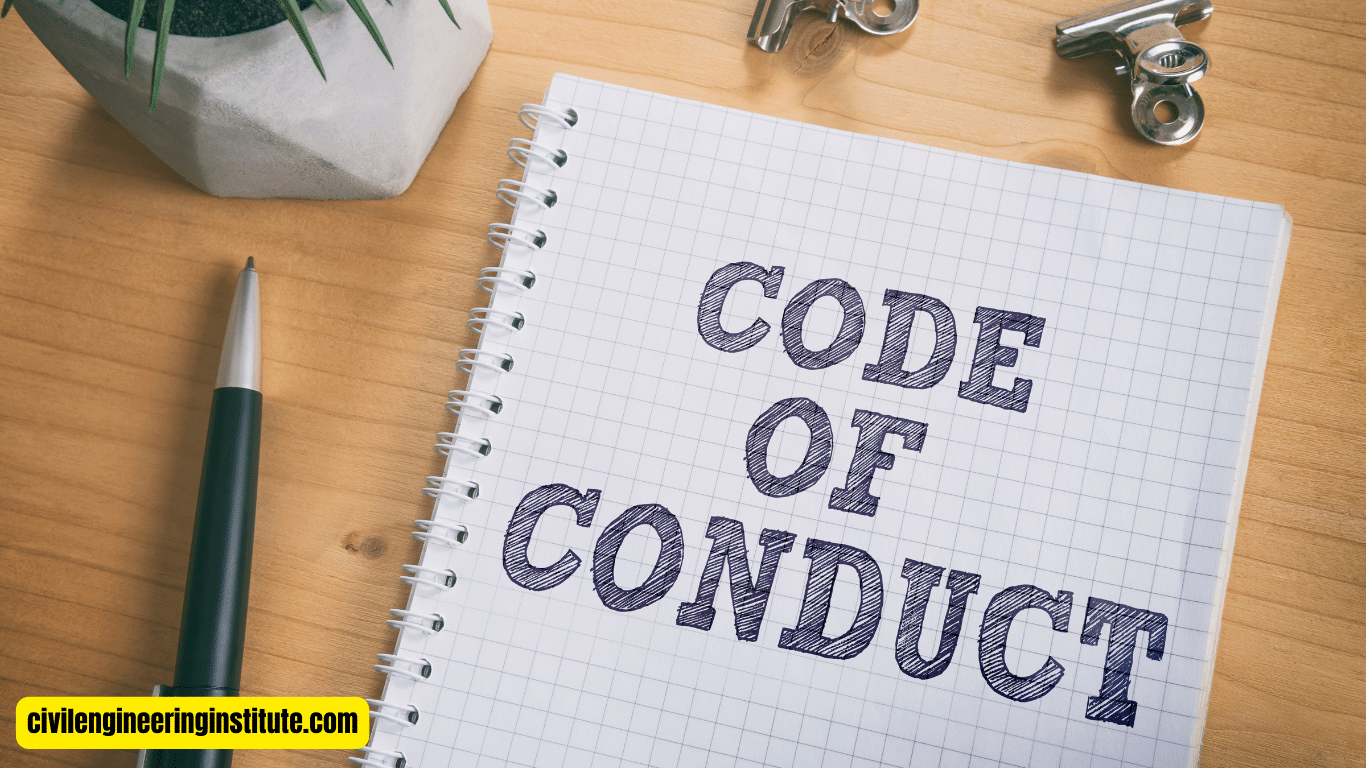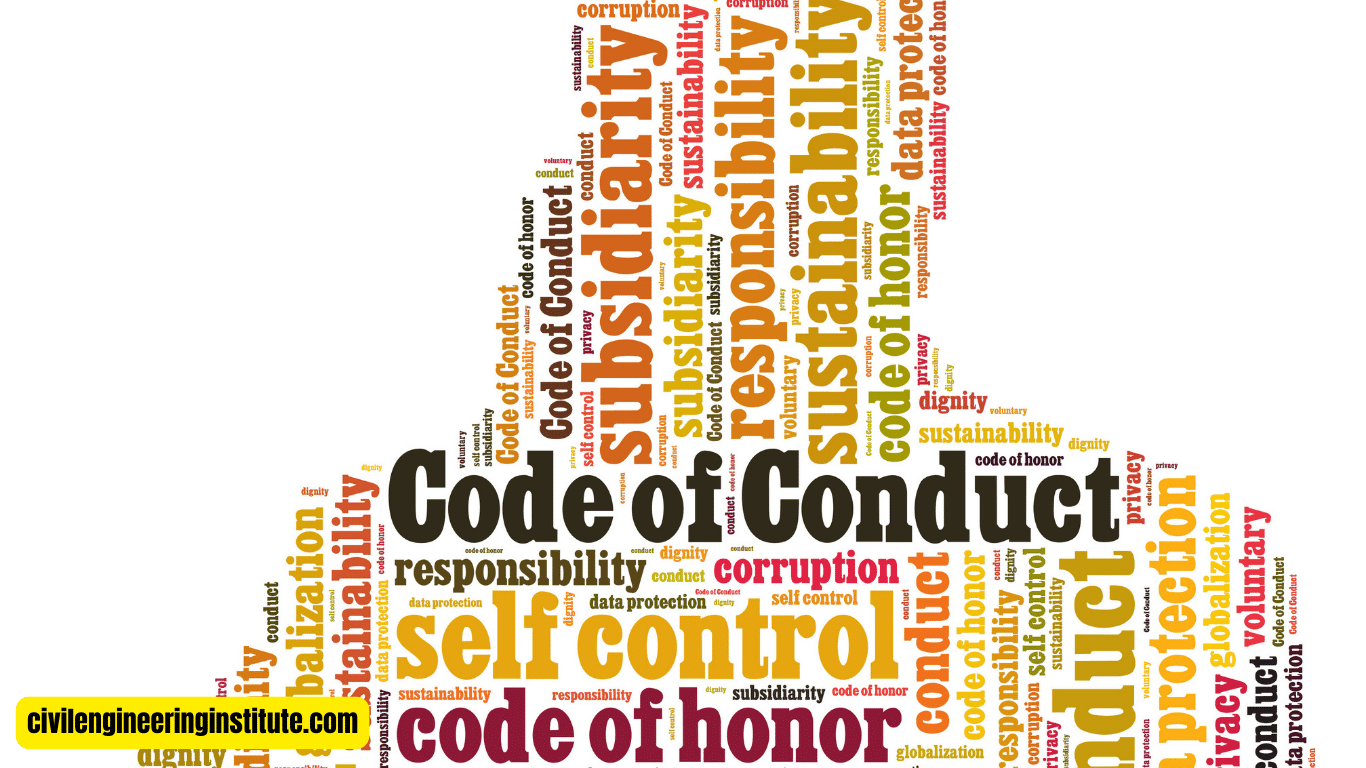Understanding Why is professional code of conduct important in any field. It’s like having a set of rules that guide how we behave and work with others. Think of it as a blueprint for professionalism. This code outlines the behaviors, attitudes, and ethics expected from professionals.
Whether you’re a doctor, teacher, engineer, or any other professional, sticking to this code ensures trust and respect from clients, colleagues, and the community. It’s not just about doing your job well; it’s about doing it with integrity and accountability. By following a professional code of conduct, we uphold standards, maintain quality, and foster a positive reputation for ourselves and our professions. In essence, it’s about being a good human being while being good at what we do.
Why is a Professional Code of Conduct Important?
In the world of professions, whether you’re a doctor, lawyer, teacher, engineer, or any other kind of professional, there’s something called a “code of conduct.” This might sound like a big, fancy term, but it’s actually pretty simple. Think of it as a set of rules that guide how professionals should behave. But why is it so important? Let’s dive in and find out.
Defining Professional Code of Conduct
First things first, what exactly is a professional code of conduct? Well, it’s like a playbook that lays out how professionals should act in their jobs. It’s not just about getting the work done; it’s also about doing it in the right way. This code includes things like ethics, integrity, respect, and responsibility. It’s basically a roadmap for being a good person while also being good at your job.
Building Trust and Respect
One of the biggest reasons why a professional code of conduct is important is because it helps build trust and respect. Imagine you’re going to a doctor for a check-up. You want to feel confident that they know what they’re doing and that they have your best interests at heart.
When professionals follow a code of conduct, it gives people confidence that they can trust them. It shows that they’re serious about their work and that they’ll do everything they can to help you.
Ensuring Quality and Standards
Another key reason for having a professional code of conduct is to ensure quality and standards. Let’s say you hire an architect to design your dream house. You want to make sure that they follow all the rules and regulations, right? A code of conduct helps professionals maintain high standards in their work. It ensures that they’re doing things the right way and that they’re delivering quality results. This not only benefits the clients but also the profession as a whole.
Promoting Fairness and Equality
Professional codes of conduct also promote fairness and equality in the workplace. They lay out guidelines for how professionals should treat each other, regardless of their background or position.
This helps create a positive and inclusive work environment where everyone feels respected and valued. Whether you’re a CEO or an intern, you’re expected to follow the same code of conduct. This ensures that everyone is held to the same standards and that no one is treated unfairly.
Fostering a Positive Reputation
Maintaining a professional code of conduct isn’t just about doing the right thing; it’s also about protecting your reputation. Think of it like this: if you hear good things about a company or a professional, you’re more likely to trust them, right? On the other hand, if you hear about someone who’s been dishonest or unethical, you’re probably going to steer clear of them.
By following a code of conduct, professionals can build a positive reputation for themselves and their profession. This can lead to more opportunities, better relationships, and overall success in their careers.
Upholding Ethics and Integrity
Ethics and integrity are at the core of any professional code of conduct. They’re about doing what’s right, even when no one is watching. This means being honest, transparent, and accountable for your actions. It also means respecting the rights and dignity of others. When professionals uphold these values, they not only earn the trust of their clients and colleagues but also contribute to a more ethical and just society.
Preventing Misconduct and Legal Issues
Having a professional code of conduct in place can also help prevent misconduct and legal issues. By clearly outlining what’s acceptable and what’s not, it sets clear boundaries for behavior. This can help professionals avoid situations that could lead to conflicts or lawsuits down the road.
It also provides a framework for addressing any issues that do arise in a fair and appropriate manner. In this way, a code of conduct acts as a safeguard, protecting both professionals and the people they serve.
Some important key points: Why is professional code of conduct important?
Purpose of the Code of Professional Conduct
The purpose of the code of professional conduct is to provide guidance and standards for how professionals should behave in their work. It’s like a rulebook that outlines what’s expected of them in terms of ethics, integrity, and responsibility. This helps ensure that professionals maintain high standards and act in the best interests of their clients, colleagues, and the public.
Importance of the Code of Conduct
The code of conduct is extremely important because it helps build trust and confidence in professionals. When people know that professionals are following a code of conduct, they feel more comfortable relying on their expertise and judgment.
It also helps prevent misconduct and unethical behavior, which can damage reputations and relationships. In short, the code of conduct is essential for maintaining professionalism and credibility.
Benefits of a Professional Code of Ethics
There are several benefits to having a professional code of ethics. Firstly, it helps professionals uphold their values and principles, even in challenging situations. Secondly, it promotes fairness and equality in the workplace, creating a positive and inclusive environment. Thirdly, it helps protect professionals from legal issues and conflicts by providing clear guidelines for behavior. Overall, a professional code of ethics helps ensure that professionals act with integrity and accountability in their work.
Concepts of Professional Conduct
Professional conduct refers to the behavior and attitudes that professionals are expected to demonstrate in their work. This includes things like honesty, respect, and professionalism. Professional conduct is important because it reflects on the individual professional, their profession as a whole, and the organization they represent. By following a code of conduct, professionals can maintain their reputation and credibility.
Professional Code of Conduct Policy
A professional code of conduct policy is a document that outlines the specific rules and guidelines that professionals must follow in their work. It usually includes information on ethics, integrity, confidentiality, and conflicts of interest.
The policy helps ensure consistency and fairness in how professionals are expected to behave, and it provides a framework for addressing any violations that may occur.
Basic Code of Conduct
The basic code of conduct includes principles like honesty, integrity, respect, and responsibility. These are fundamental values that all professionals should uphold in their work. By adhering to these principles, professionals can maintain trust and credibility with their clients, colleagues, and the public.
Code of Conduct Examples
Examples of a code of conduct may include rules about maintaining confidentiality, avoiding conflicts of interest, treating others with respect, and complying with laws and regulations.
For instance, a healthcare professional’s code of conduct might include guidelines on patient confidentiality and providing quality care. Meanwhile, a lawyer’s code of conduct might include rules about representing clients fairly and honestly.
Steps of Code of Conduct
The steps of a code of conduct typically involve creating the policy, communicating it to employees or members, providing training on its principles, enforcing compliance, and addressing any violations that occur. It’s important for organizations to regularly review and update their code of conduct to ensure that it remains relevant and effective in guiding behavior. By following these steps, organizations can create a culture of integrity and professionalism.
Conclusion
So, why is a professional code of conduct important? It’s because it’s the foundation of professionalism. It’s what sets professionals apart and defines how they should act in their jobs. By following a code of conduct, professionals build trust, ensure quality, promote fairness, and protect their reputation. But perhaps most importantly, it’s about doing the right thing and upholding values like ethics, integrity, and respect. In a world where trust and credibility are everything, a professional code of conduct is more important than ever.
FAQs
What is a professional code of conduct?
A professional code of conduct is like a rulebook for professionals, guiding how they should behave in their jobs.
Why is a code of conduct important?
A code of conduct is important because it helps professionals maintain high standards, build trust, and avoid unethical behavior.
How does a code of conduct build trust?
By following a code of conduct, professionals show that they’re serious about their work and that they’ll do everything they can to help others.
What are the benefits of following a code of conduct?
Following a code of conduct helps professionals uphold their values, promote fairness, protect their reputation, and prevent legal issues.
What happens if a professional violates the code of conduct?
Violating the code of conduct can lead to consequences such as disciplinary action, loss of trust, and damage to one’s reputation.
Who creates the code of conduct?
Codes of conduct are typically created by professional organizations, employers, or regulatory bodies to establish standards for behavior in a particular profession or industry.
How can I learn about my profession’s code of conduct?
You can usually find information about your profession’s code of conduct on professional association websites, in employee handbooks, or through training programs.
Does a code of conduct apply to everyone in the profession?
Yes, a code of conduct applies to all professionals within a particular profession, regardless of their role or level of experience.
Can a code of conduct change over time?
Yes, codes of conduct may be updated periodically to reflect changes in laws, regulations, or ethical standards within a profession or industry.
What should I do if I have questions about the code of conduct?
If you have questions about your profession’s code of conduct, you can usually reach out to your employer, professional association, or regulatory body for guidance and clarification.





